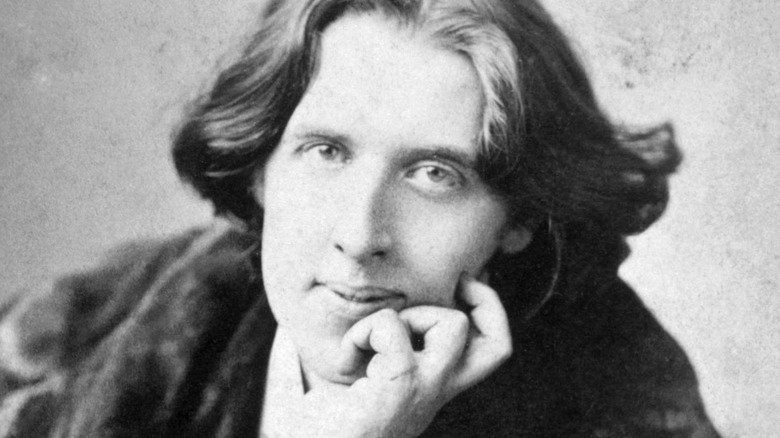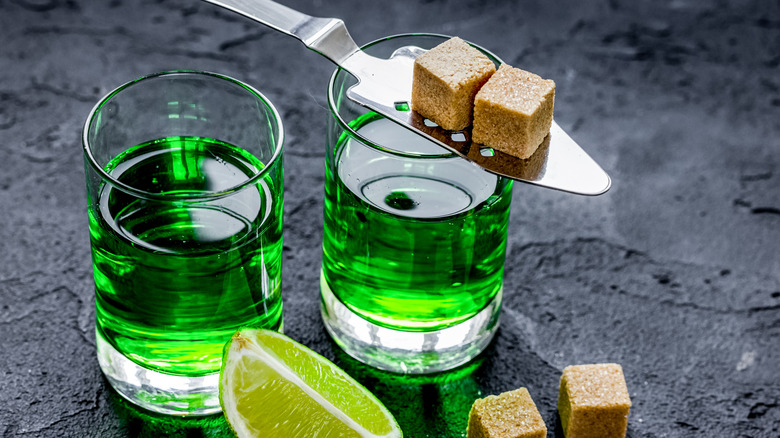The Controversial Green Tipple Beloved By Oscar Wilde
An era-defining poet and playwright, Oscar Wilde is known to history as the flamboyant face that helped define the Aesthetic movement. As such, he was perpetually well-dressed and habitually drunk, the latter of which, some suggest, stoked the flames of his creative fire. As his high-society persona would imply, he loved Champagne best of all (particularly Perrier-Jouët), but, by all accounts, he wasn't above drinking whiskey, brandy, wine, or whatever would get him good and drunk. Like many other great artists with a tragic propensity for self-destruction, however, it was absinthe that became inextricably linked to his legacy.
Originally designed for medicinal use at the end of the 18th century, absinthe is a potent herbal concoction made with anise, lemon balm, hyssop, stinging nettles, wormwood, and ethanol. Electric green in color and often containing more than twice the amount of alcohol as vodka or whiskey, it packs a serious punch. Its effects were so great, in fact, that it earned the nickname "The Green Fairy." Some even believed that the inclusion of wormwood gave the drink the ability to incite hallucinations as the herb contains a psychoactive compound called thujone, though that was later disproved. Inexpensive and effective in inducing drunkenness, by the middle of the 19th century, it was the darling of France's art-centric counterculture. However, the debauchery attributed to it was such that polite society demonized the drink, and it was ultimately banished for nearly a century before seeing a resurgence.
Dry wit fueled by dry wine
The main thing absinthe's adversaries feared was its reputation for altering the drinker's perception of reality. While absinthe can't actually make you hallucinate, it is still incredibly potent. As such, it's typically combined with a sugar cube and water before it is drunk, which is the reason absinthe is sometimes cloudy. It works to cut the alcohol concentration and soften the bitter, herbaceous taste. Commenting on the effects of the drink, Oscar Wilde is widely credited with saying, "After the first glass, you see things as you wish they were. After the second, you see things as they are not. Finally, you see things as they really are, and that is the most horrible thing in the world." It's worth noting, however, that Wilde never actually wrote anything about absinthe specifically, and the above quote was accredited to him by his friend, author Ada Leverson.
Indeed, Wilde was said by another close friend to be "a terrible absinthe-drinker, through which he got his visions and desires." His taste for the stuff apparently only worsened after being persecuted for his sexuality and subsequently imprisoned. But in those darkest hours (as well as at the end of his life when he was gravely ill with the ear infection that would ultimately kill him), it was Champagne that consoled him. As a fancy middle finger to all those who tried to dim his shine, he even ordered a case of Perrier-Jouët to his prison cell.

